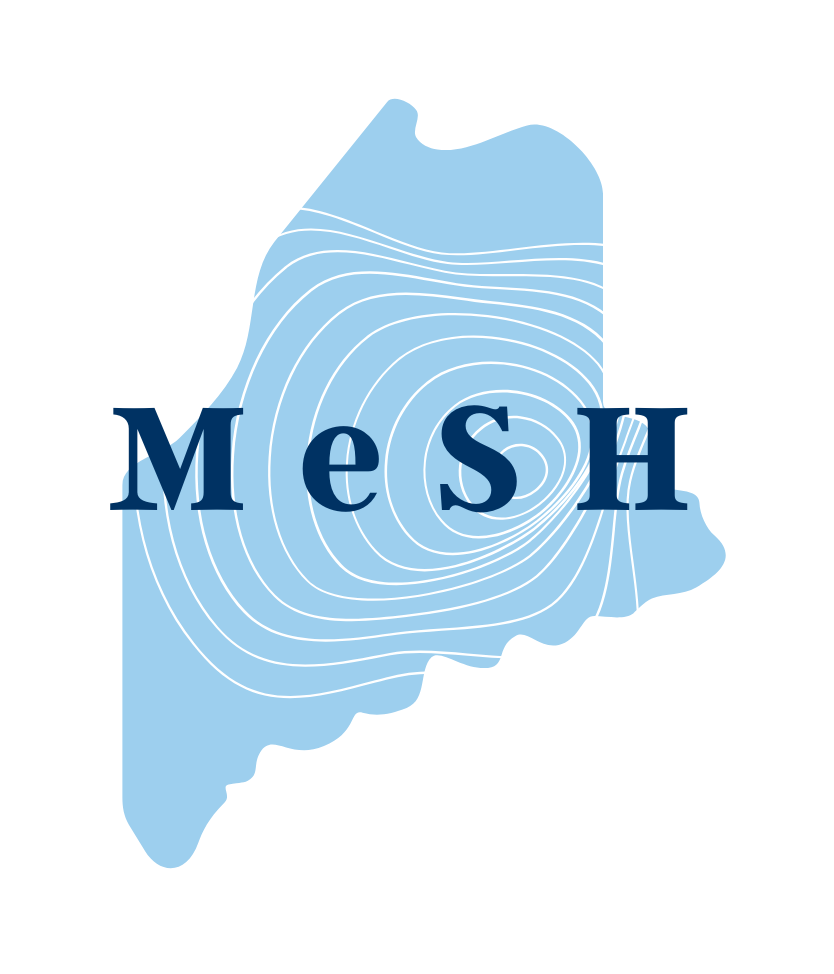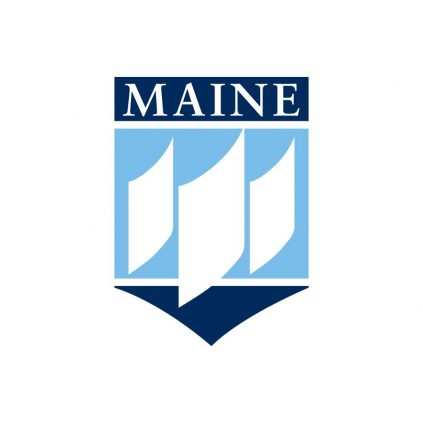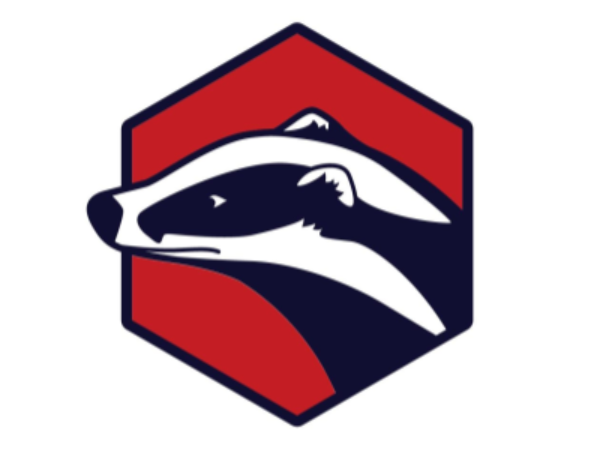Micro-Credentials and Micro-Badges
A micro-credential is a verified credential earned when learners demonstrate their knowledge and skills related to a specific area of study. Micro-credentials are made up of stacked digital badges along a pathway that highlights the skills needed to be successful. There are three levels of badges which are progressively in depth, and once all three are attained, the learner earns a UMS micro-credit. Badges and micro-credits can be shared on LinkedIn and other professional and social media sites. For general information, please contact 207-581-1359, ums.mc@maine.edu, or umainecareercenter@maine.edu. You can also visit the Career Center at Room 300 Memorial Union to talk to a counselor or follow engagedblackbear on Facebook.
Micro-Credits Available Through the UMS System
Career Prepared
This pathway helps you develop your career goals, build career-related skills, and is completely personalized based on what you articulate in your career action plan. This course is free and self-paced. In order to be eligible, individuals must be a current University of Maine System student and have passed (or be enrolled in) ENG 101.
4-H STEM Ambassadors
This micro-credential validates the learner’s successful completion of the UMS 4-H STEM Ambassadors pathway. Recipients earned at least one 21st Century Skills micro-badge. Learners complete core training in positive youth development, experiential learning, and risk management, and apply their learning in a real-world setting. Leadership was exhibited within their continued role as 4-H STEM Ambassadors or as a senior member of a team while developing their collaboration, resilience, independence, and written communication skills. Evidence was verified and by authorized UMS staff to ensure standards were met. University of Maine System undergraduate and graduate students are eligible for participation. Contact 4-HScience@maine.edu for more information.
4-H Outdoor Leadership
This micro-credential validates the learner’s successful completion of the UMS 4-H Outdoor Leadership pathway. Learners complete training in outdoor leadership, have applied their learning in a real-world outdoor leadership setting, and developed an understanding of, and connection to careers related to outdoor leadership. Recipients are able to safely lead personal trips with friends and family in backcountry settings and developed Core Competencies in: two or more disciplines of outdoor activities (canoeing, backpacking, x-country skiing, etc…), group management including leadership, group dynamics, safety and risk assessment; “hard” skills such as map and compass, and first aid. Evidence of completion was verified by authorized UMS faculty to ensure standards were met. 4-H youth participants and other approved program participants are eligible. Contact Ryder Scott at ryder.scott@maine.edu for more information.
Adult Learning & Teaching
This micro-credential validates the learner’s successful completion of the UMS pathway Adult Learning and Teaching. Learners completed rigorous faculty development training in adult learning and applied practical, hands-on strategies to improve teaching adult learners. Evidence was verified by authorized UMS faculty to ensure standards were met. This course is open to all Summer Academy for Adult Learning and Teaching (SAALT) participants and other eligible training participants. Contact Dr. Rucha Modak at rucha.modak@maine.edu for more information.
Aquaculture
This micro-credential validates the learner’s successful completion of the UMS Aquaculture pathway. Learners completed training in aquaculture and applied their learning in a professional aquaculture work-based setting. The learner developed skills in use and maintenance of aquaculture equipment, culturing aquaculture species, and the ability to apply relevant knowledge and skills in an aquaculture industry setting. Recipients are able to work professionally within the aquaculture industry. Evidence was verified by authorized UMS faculty to ensure standards were met. Students, learners, professionals, community members, and employees are eligible. Contact Dr. Mary Scarlett Tudor at mary.tudor@maine.edu for more information.
Computer Support Specialist
This micro-credential validates the learner’s successful completion of the UMS Computer Support Specialist pathway. Learners completed training and applied their learning within a computer support work-based setting or equivalent. They earned the IC3 Digital Literacy Certification, the CompTIA A+ Certification, and met standards in academics and employability. These learners are able to provide technical assistance and advice to computer users and organizations. They demonstrated skills and competency in digital literacy, foundational computer installation, preventive maintenance, networking, security and troubleshooting. Evidence was verified by authorized Adult Education staff and instructors to ensure standards were met. Adult learners through the Maine Department of Adult Education are eligible. Contact Megan Dichter at megan.dichter@maine.gov in the Maine Department of Education.
Financial Literacy
This micro-credential validates the learner’s successful completion of the UMS Financial Literacy pathway. Learners completed training in basic financial concepts and practices including budgeting, credit and debt, savings and net worth, and applied their learning in an action plan based on their individual financial goals. The learner demonstrated competency in the skills needed to understand basic financial management concepts and manage their own finances. This micro-credential acknowledges that the learner met the Institute for Financial Literacy’s national standards for Adult Financial Literacy Education benchmarks in money management, credit, and debt management. University of Maine System Students are eligible to take this course. Contact Jean Dempster at dempster@maine.edu or Kelley Glidden at kelley.glidden@maine.edu for more information.
Food Safety Systems
This micro-credential validates the learner’s successful completion of the UMS Food Safety Systems pathway. Learners demonstrated application of competence and skills in the development, implementation, and management of a food safety system. Recipients completed online training in introductory microbiology and general industry sanitation, successfully completed an approved mentored experiential learning opportunity, internship or field experience, and completed at least two trainings or certificates related to food safety. Learners developed practical food safety skills to help ensure the production of safe food in Maine. They completed a Sanitation Standard Operating Procedure and accompanying record documents, and wrote and managed a Food Safety Plan, demonstrating skills and knowledge of food safety and sanitation in real-world food processing systems. Upon completion of Levels 1, 2 and 3, Learners demonstrated competence in a food processing environment with further experience and certifications. Evidence was verified by authorized UMS faculty to ensure standards were met. Community members, employers, and University of Maine System Students are eligible. Contact Jason Bolton at jason.bolton@maine.edu for more information.
Global Competency
This micro-credential validates the learner’s successful completion of the UMS Global Competency pathway. Learners successfully completed an instructional program and global experience that provided greater understanding and appreciation of other cultures and global issues. Throughout the process, they analyzed and applied their shared experiences, incorporating their learning into academic work and/or shared their experiences through presentations in the broader community. Learners demonstrated global competency in cultural self-awareness, knowledge of other worldview frameworks, empathy with other global perspectives, intercultural communication, and openness to diversity. The learners achieved a level of Global Competency that is critical to their full participation in our culturally diverse global society and competitiveness in a global economy. Evidence was verified using the Association of American Colleges and Universities (AAC&U) Intercultural Knowledge and Competence Liberal Education and America’s Promise (LEAP) rubric by authorized UMS faculty to ensure standards were met. University of Maine System Students are eligible. Contact Erin-Kate Sousa at erinkate.sousa@maine.edu for the University of Maine, Jennifer Hebert at jennifer.z.hebert@maine.edu for the University of Maine at Farmington, and Emily Zider at emily.zider@maine.edu for the University of Southern Maine.
Grant Writing
This micro-credential validates the learner’s successful completion of the UMS Grant Writing pathway. Learners completed grant writing training and applied their learning by completing a draft grant proposal for submission, received feedback from the instructor, and presented their proposals to peers. The recipients of this micro-credential gained skills in grant management reporting, locating funding sources, determining capacity and goals for a grant, grant creation strategy, outcome measurement planning, writing grant sections, and creating a budget. They understand Requests for Proposals, the components of a grant proposal, and ways to avoid grant-writing pitfalls. Learners reflected on their learning, provided insights into their expanded knowledge, development, and enhanced skills, and demonstrated competency in grant writing and leading a team in proposal design. Evidence was verified by an authorized UMS instructor to ensure standards were met. Community members are eligible. Contact Kim Wilson Raymond at kim.raymond@maine.edu or Michelle Pattern at michelle.patten@maine.edu for the University of Maine Hutchinson Center. Contact Eleanor Udeh at eleanor.udeh@maine.edu for the University of Southern Maine.
Information Literacy
This micro-credential validates the learner’s successful completion of the UMS Information Literacy pathway. The learner completed training in information literacy and applied their knowledge and skills throughout the research process that culminated in a final research product. The learner worked with a reference librarian in one or more capacities, gathered data from sources using learned tools, evaluated collected data for reliability, authority, and timeliness, and cited sources using the appropriate citing format required for the information product. The learner developed competence in recognizing a need for information, conducting research via appropriate sources (e.g., library catalog, databases, government websites), evaluating and identifying credible information sources, synthesizing information from multiple sources into a final product, and recognizing the importance of applying attribution to others’ ideas used in the project. The learner met the standards of the Association of College & Research Libraries (ACRL) Information Literacy Framework. University of Maine System undergraduate and graduate students are eligible. Contact Sofia Birden at sbirden@maine.edu for more information.
Innovation
This micro-credential validates the learner’s successful completion of the UMS Innovation pathway. Recipients of this micro-credential also earned Education Design Lab 21st Century skills, Creative Problem Solving, and Critical Thinking badges. Learners completed training in creating, communicating and evaluating innovation strategies. The recipients of this micro-credential were mentored through the innovation process and applied their knowledge by completing an approved innovation project or internship. Learners led an idea generation session with a group outside of a course or training, developed competency in the application of innovation skills by seeking out stakeholder opinions and using Innovation Engineering strategies, and demonstrated the ability to create marketable ideas and ways to act on those ideas. Learners developed skills in creating visuals and/or functional prototypes, creative problem solving, critical thinking and systems thinking. Learners reflected on the attainment of their learning goals, the application and synthesis of their skill development, and the impact of their work on the community. Evidence was verified by authorized UMS faculty to ensure standards were met. University of Maine System students and community members are eligible. Contact Matthew Hodgkin at matthew.hodgkin@maine.edu for the University of Maine Foster Center for Student Innovation.
Leadership
This micro-credential validates the learner’s successful completion of the UMS Leadership pathway. Learners completed training in leadership development, applied their learning by fulfilling the responsibilities of a leadership role on campus or in the community, receiving a positive performance review, reflected on the success of their experience, and are able to articulate the leadership skills they applied and strengthened while earning this micro-credential. Learners demonstrated employability skills by earning one or more 21st Century micro-badges. Learners were assessed using the Education Design Lab’s rubric and demonstrated competence in exhibiting initiative (leading with or without a title, acting as a catalyst, demonstrating self-awareness and learning from experience). Evidence was verified by UMS faculty to ensure standards were met. University of Maine System students are eligible. Contact Jennifer Desmond at jennifer.desmond@maine.edu for the University of Maine. Contact Sara Flowers at sara.flowers@maine.edu or Sherrie Brann at sherrie.brann@maine.edu for the University of Maine at Augusta TRIO Scholars.
Project Management
This micro-credential validates the learner’s successful completion of the UMS Project Management pathway. Learners are able to use the knowledge and skills gained in training to effectively implement and apply project management skills in a work-based setting. Earning this micro-credential puts the learner on a path to earn the Project Management Institute’s Project Management Professional (PMP) certification. Learners completed 56 hours of comprehensive project management training that included an overview of the Project Management Institute’s Project Management Book of Knowledge (PMBOK) frameworks, skills and competencies required to manage a project. Learners’ skills and competencies include an examination of the situation, setting goals to incorporate learning into their individual work plan, team organization, identification of tasks, estimating resources, setting schedules, managing risk, and completion of a plan. Evidence was verified by authorized UMS Project Management instructors to ensure standards were met. Community members are eligible. Contact Michelle Patten at michelle.patten@maine.edu or Kim Wilson Raymond at kim.raymond@maine.edu for the University of Maine Hutchinson Center. For the University of Southern Maine contact Eleanor Udeh at eleanor.udeh@maine.edu or Angela Paolucci at angela.paolucci@maine.edu for more information.
Undergraduate Research Scholar
This micro-credential validates the learner’s successful completion of the UMS Undergraduate Research Scholar pathway. Learners successfully completed a mentored research experience, received a positive appraisal of their work and skill development, and developed competence in the research process, application of safety and ethical standards, networking and presentation skills. UMS Quality Assurance criteria and standards were met and verified. Contact ums.mc@maine.edu for more information about eligibility. Contact the University of Maine Center for Undergraduate Research (CUGR) at CUGR@maine.edu for more information. For the University of Maine at Farmington contact ums.mc@maine.edu.
Micro-Badges Available Through the UMS System
Dawnland – Maine Indian History
This badge is issued in recognition of the learner’s interest in understanding more about the original peoples of what is now called Maine. The learner explored this history from the time of the Ice Age to the present day and their knowledge on State and Tribal Policies, Prehistoric and Historical eras, and the current indigenous knowledge perspective was assessed. Learners of this badge are able to accurately communicate with others about these topic areas. This credential was designed using learning results that were rigorously tested in various academic institutions and levels of learning. University of Maine System students and community members are eligible. Contact John Bear Mitchell at john.b.mitchell@maine.edu for the University of Maine Wabanaki Center.
UMS Maine Meat Cutting School
This badge is issued in recognition of the learner’s successful completion of the Maine Meat Cutting School offered by the University of Maine Cooperative Extension. The Maine Meat Cutting School is a rigorous 30-hour online training program that introduces students to high quality meat cutting and food safety training. University of Maine System students, community members, and anyone interested in professional meat processing are eligible. Contact Dr. Colt Knight at colt.knight@maine.edu for the University of Maine Cooperative Extension.
21st Century Skill Badges
Contact ums.mc@maine.edu for more information.
Collaboration
The individual who has earned this badge has demonstrated 21st Century collaboration skills, which include the capacity to work productively with others toward a common goal by valuing and strengthening relationships, incorporating diverse viewpoints, using active listening skills, and focusing on solutions rather than problems.
Creative Problem-Solving
The individual who has earned this badge has demonstrated 21st-century creative problem-solving skills, which include the capacity to exercise both divergent and convergent thinking, identify patterns, manage ambiguity, and apply an iterative process.
Critical Thinking
The individual who has earned this badge has demonstrated 21st Century critical thinking skills, which include the capacity to gather and assess relevant information, identify patterns, question assumptions, and support ideas with facts.
Empathy
The individual who has earned this badge has demonstrated 21st Century skills in empathy, which include the capacity to listen actively, validate others’ feelings and perceptions, incorporate diverse perspectives, and recognize others’ needs and values.
Initiative
The individual who has earned this badge has demonstrated 21st Century initiative and leadership skills, which include the capacity to motivate and influence others, act as a catalyst, demonstrate self-awareness, and learn from experience.
Intercultural Fluency
The individual who has earned this badge has demonstrated 21st Century intercultural fluency, which includes the capacity to recognize and challenge one’s own cultural biases, show curiosity, demonstrate self-awareness, and incorporate diverse perspectives.
Oral Communication
The individual who has earned this badge has demonstrated 21st Century skills in oral communication, which include the capacity to speak with clarity and precision, adjust tone and word choice for both formal and informal settings, listen actively, and recognize nonverbal cues.
Resilience
The individual who has earned this badge has demonstrated 21st Century skills in resilience, which includes the capacity to learn from experience, exhibit flexibility; demonstrate self-awareness, and focus on solutions.



